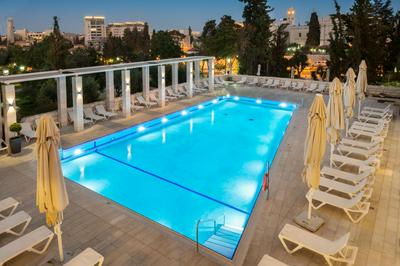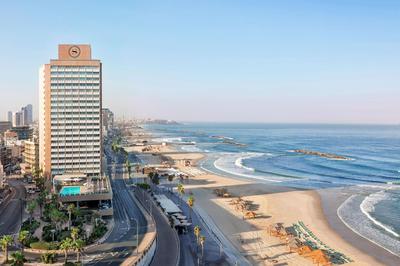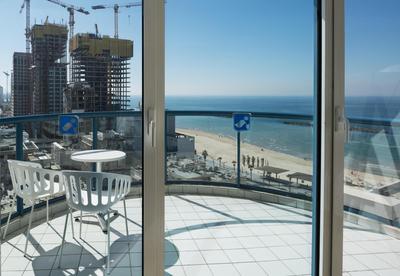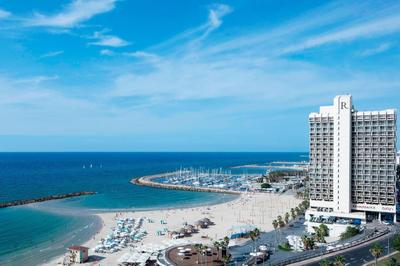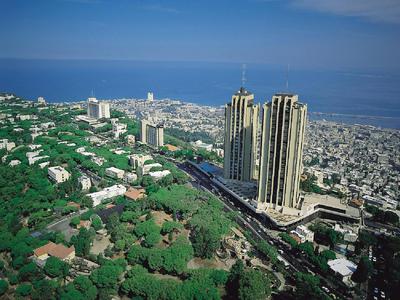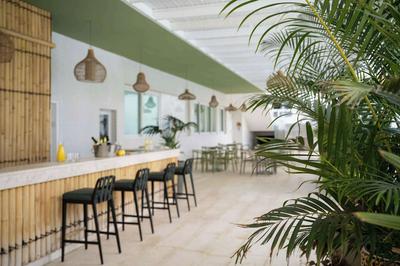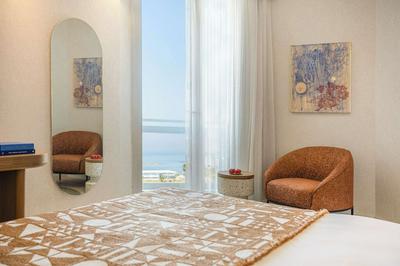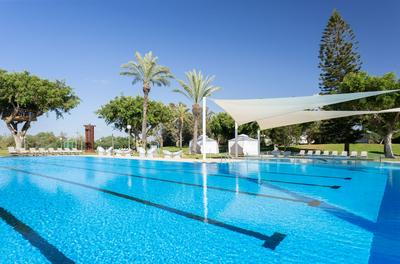When to visit Israel during the year?
Israel experiences a Mediterranean climate with hot, dry summers and mild, rainy winters. The most popular time to visit is during the spring (March to May) when wildflowers bloom, and temperatures are pleasant. Summer (June to August) attracts beachgoers to Tel Aviv, while autumn (September to November) is ideal for exploring cities like Jerusalem without the summer heat. Winter (December to February) sees fewer tourists, particularly in the colder regions like the Golan Heights, but is great for experiencing the biblical landscapes and cultural festivals.
How to get to Israel?
Reaching Israel is easy, with various transport options available. The main gateway is Ben Gurion Airport located near Tel Aviv, which connects many international routes. There are also buses and trains for domestic travel, making it convenient to explore the country.
- Main airports include Ben Gurion International Airport (TLV) in Tel Aviv with major international routes from all continents, including:
- North America - New York (JFK)
- Europe - London (LHR)
- Asia - Bangkok (BKK)
- Africa - Johannesburg (JNB)
- Oceania - Sydney (SYD)
- Low-cost airlines include Wizz Air and Ryanair.
- Flight times vary; from New York to Tel Aviv is about 12 hours.
- Main stations are in Tel Aviv and Jerusalem.
- Buses connect cities like Haifa, Eilat, and Beer Sheva, offering a scenic view of the countryside.
- Israel has an efficient train service connecting major cities like Tel Aviv, Jerusalem, and Haifa.
- International services are limited but available from nearby countries.
- Main highways include the coastal highway (Route 2) and the Jerusalem-Tel Aviv road (Route 1).
- Distances from major cities worldwide vary; driving from Tel Aviv to Jerusalem takes about 1 hour.
- Tolls are common on highways, and road conditions are generally good.
Tourist activities in Israel
Israel is a diverse country packed with incredible activities and landmarks across its regions. In the north, venture into the Galilee for hiking and exploring ancient ruins like the city of Tiberias by the Sea of Galilee. The mystical city of Safed, known for its art and Kabbalistic history, is also a must-visit. Around Tel Aviv, enjoy vibrant nightlife, stunning beaches, and culinary experiences in the Carmel Market. Don’t miss a trip to the ancient port city of Jaffa for a glimpse of history and the Mediterranean vibe.
In Jerusalem, explore spiritual sites, including the Western Wall and the Church of the Holy Sepulchre. Adventure enthusiasts can also float in the Dead Sea, the lowest point on earth, and visit Masada to see the ancient fortress. While in the south, Eilat offers remarkable snorkeling and diving spots in the Red Sea. For culture lovers, the city of Haifa provides beautiful gardens and a glimpse into the Baha’i faith.
Tempt your taste buds with Israel's culinary scene, known for its falafel, hummus, and fresh ingredients. People can immerse themselves in festivals celebrating everything from music to traditional customs. Ultimately, each region of Israel offers a unique blend of activities for travelers of all interests.
Accommodation in Israel
Accommodation options in Israel cater to a wide range of budgets and preferences. From luxury hotels in Tel Aviv and Jerusalem to charming guesthouses in smaller towns, there's something for everyone. On average, prices per night can range from $30 for budget hostels to over $300 for high-end hotels. Mid-range hotels typically cost between $100 and $200, especially during peak seasons like summer and religious holidays. For those looking for a unique experience, renting an apartment or villa is becoming increasingly popular, especially in urban areas. Campsites are available in nature reserves for adventurous travelers seeking a connection with the great outdoors. Overall, choosing the right place to stay greatly enhances the travel experience in this diverse nation.
Food in Israel
The culinary landscape in Israel is a vibrant mix of flavors, cultures, and traditions. National dishes include falafel, shawarma, and shakshuka, showcasing the Middle Eastern influences that delight visitors. Don’t miss out on trying the fresh salads, grilled meats, and sweet treats like baklava or halva. The wine scene is flourishing with desert wineries and local brands gaining recognition worldwide. Typical meal prices range from $10 for a casual street food option to $30 or more in a sit-down restaurant. To experience true local flavors, enjoy meals at traditional markets and family-owned eateries across the country.
Important numbers and information
- Emergency Services: Police - 100, Ambulance - 101, Fire Brigade - 102
- Embassy Contacts: U.S. Embassy in Tel Aviv - +972 3-519-7575
- Airports: Ben Gurion Airport (TLV), Airport Road, 7015001, Tel Aviv
- Currency: Israeli New Shekel (ILS), Payment methods - Credit cards are widely accepted
- Visa: Most countries can enter visa-free for up to 90 days; ensure your passport is valid for at least six months beyond arrival.
What to see in Israel?
Israel is bursting with historical and cultural wonders. Must-visit cities include:
- Jerusalem: Home to holy sites like the Western Wall and Dome of the Rock, this city offers a profound spiritual experience.
- Tel Aviv: Known for its modern architecture, beaches, and lively nightlife, Tel Aviv is a hub of creativity and innovation.
- Haifa: Famous for the Bahá'í Gardens, this coastal city blends natural beauty with cultural heritage.
- Dead Sea: Experience the unique sensation of floating in this saline lake, renowned for its therapeutic properties.
- Masada: A poignant historic site, the ancient fortress on a plateau offers stunning views and rich history.
- Golan Heights: This region offers breathtaking landscapes, wineries, and historical sites.
- Eilat: Nestled on the shores of the Red Sea, Eilat is perfect for water sports and resort relaxation.
Each of these locations provides a glimpse into Israel’s diverse culture, rich history, and beautiful landscapes.
History, geography and climate
Israel’s history is marked by ancient civilizations, religious significance, and a modern struggle for identity. The land has witnessed the rise and fall of empires, from Israelites and Romans to Crusaders and Ottomans, culminating in the establishment of the State of Israel in 1948. Geographically, the country features a range of landscapes, from the Mediterranean coastline to the arid Negev Desert and mountain ranges like the Galilee and Golan Heights. Israel enjoys a Mediterranean climate with average summer temperatures soaring above 30°C (86°F) and milder, wetter winters averaging around 10-15°C (50-59°F). This variety in landscape and climate shapes its unique culture and lifestyle.
Population and culture
Israel has a diverse population of around 9 million people, predominantly Jewish, with significant Arab and Druze communities, contributing to a rich cultural tapestry. Hebrew and Arabic are the official languages, reflecting the country’s dual identity. Religiously, Judaism is the largest faith, alongside Islam and Christianity. Israel celebrates numerous holidays, such as Passover, Yom Kippur, and Ramadan, showcasing its multicultural essence. Artistic expressions abound, from literature and music to theater and visual arts, often influenced by the nation’s complex history. Cultural traditions vary widely across communities but often emphasize family, hospitality, and festive gatherings.

